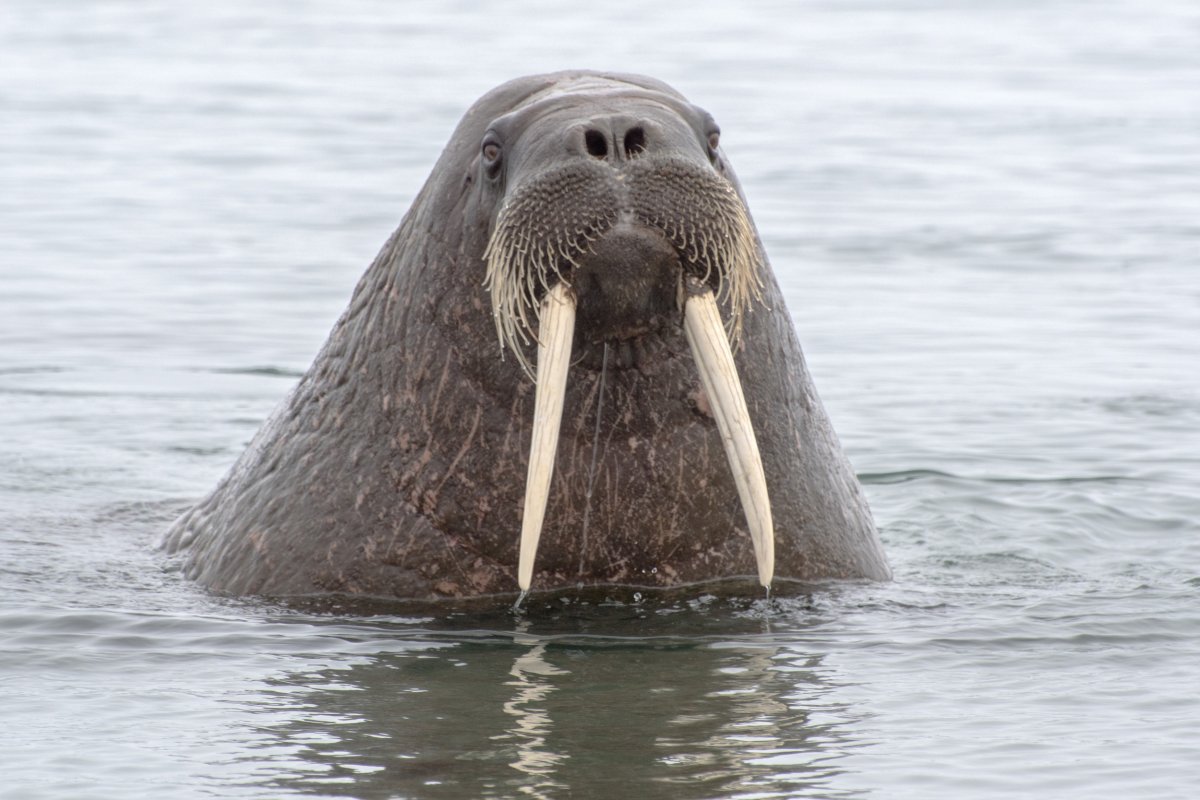A Russian navy boat sank after being attacked by walruses, according to reports.
The bizarre encounter took place during an expedition to the Franz Josef Land archipelago in the Arctic Ocean aboard a tugboat known as Altai. The vessel belongs to the navy's Northern Fleet, The Barents Observer reported.
Researchers from the Russian Geographical Society were on board the Altai. But to get to shore on the archipelago, the scientists needed to use a small rubber landing craft.
It was during a trip on this landing boat towards Cape Heller—located on one of the islands in the archipelago—that a female walrus attacked the boat.
According to a press release issued by the Geographical Society, the walrus probably attacked because she feared for the safety of her calves.
"The boat sank, but tragedy was avoided thanks to the clear actions of the squad leader," the press release said. "All the landing participants safely reached the shore."
Another press release issued by the Northern Fleet described the encounter with the walrus, but did not mention that the boat sank.
This statement simply read: "During the landing at Cape Heller, a group of researchers had to flee from a female walrus, which, protecting its [calves], attacked an expedition boat. Serious troubles were avoided thanks to the clear and well-coordinated actions of the Northern Fleet servicemen, who were able to take the boat away from the animals without harming them."
Female walruses can weigh more than 2,500 pounds, while males can exceed 3,500 pounds, according to SeaWorld. The animals are not known to attack humans unprovoked. However, they will do everything necessary to protect their offspring if they feel that they are being threatened.
The Geographical Society researchers have been studying the flora and fauna of the archipelago for more than a month, while also making observations of the ice there.
The scientists say the latest incident with the walrus is a demonstration of how the polar attitudes are "fraught with many dangers," especially as winter approaches. The Geographical Society has previously described some of the many risks its researchers face while working in these regions, including wild animals, storms and low temperatures.
"Winter has come in the Arctic, and weather is making significant adjustments to the campaign plan for the Altai rescue tugboat," the press release said. "Lingering northern winds drove ice to the shores of the archipelago. After the wind changed to the south, the ice edge moved north, but numerous icebergs appeared in the inner straits."
Correction 9/25, 2:25 a.m. The original headline and article called walrus calves cubs.

Uncommon Knowledge
Newsweek is committed to challenging conventional wisdom and finding connections in the search for common ground.
Newsweek is committed to challenging conventional wisdom and finding connections in the search for common ground.
About the writer
Aristos is a Newsweek science reporter with the London, U.K., bureau. He reports on science and health topics, including; animal, ... Read more
To read how Newsweek uses AI as a newsroom tool, Click here.








